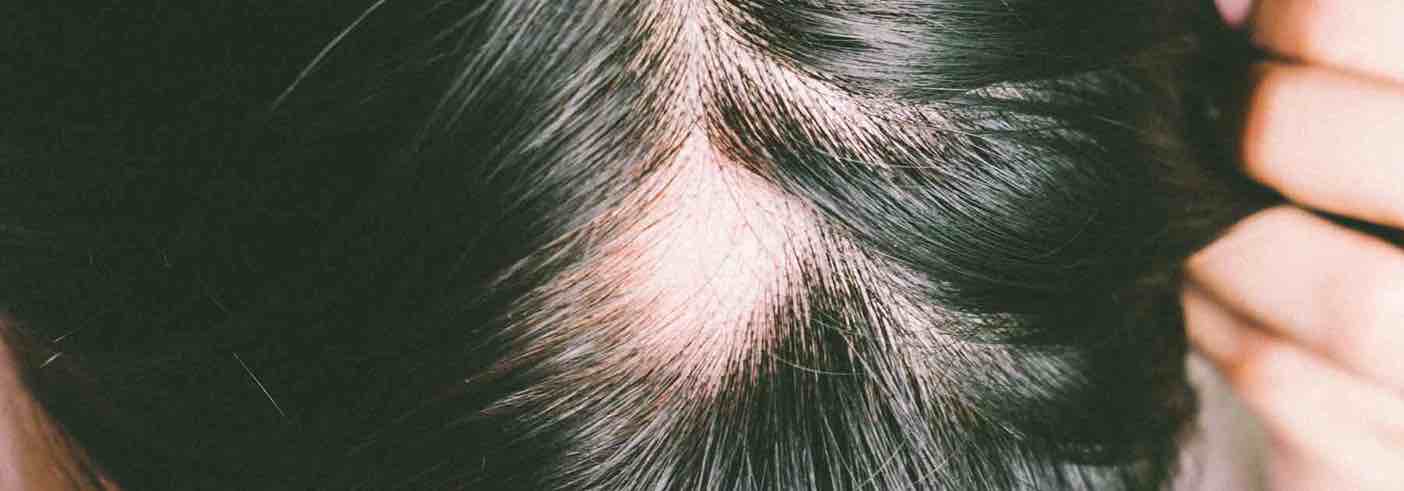At Simply Meds Direct, we often speak to men who are worried about thinning hair and are searching for effective solutions. One of the most common questions we hear is whether shampoos for alopecia can help with male pattern baldness. With so many products on the market promising to restore hair, it can be difficult to know what really works and what might just be clever marketing.
Male pattern baldness, also known as androgenetic alopecia, is the most common cause of hair loss in men. It is primarily caused by genetics and hormonal changes, specifically sensitivity to a hormone called dihydrotestosterone (DHT). Understanding how this process works makes it easier to see why some treatments are effective while others, like many shampoos, may have limited results.
The Role of DHT in Male Pattern Baldness
Male pattern baldness occurs when hair follicles become sensitive to DHT, a byproduct of testosterone. Over time, this sensitivity causes the follicles to shrink, producing thinner and shorter hair until growth stops entirely. Because this process is hormonal and happens at the follicle level, most surface-level treatments, including many shampoos, cannot directly address the root cause.
This does not mean that shampoos have no role in managing hair health, but it does explain why expectations should be realistic when using them for treating alopecia.
Do Shampoos for Alopecia Actually Work?
Many shampoos are marketed as solutions for hair thinning and male pattern baldness. While some can improve scalp health and reduce breakage, their ability to reverse or stop genetic hair loss is limited. Shampoos work on the surface of the scalp, and most ingredients are not absorbed deeply enough to reach the hair follicles where DHT causes damage.
That said, certain shampoos containing active ingredients have shown potential benefits when used alongside other treatments. For example, shampoos containing ketoconazole or caffeine may improve scalp health and help create a better environment for hair growth. However, they cannot block DHT or reverse male pattern baldness on their own.

Ingredients Commonly Found in Alopecia Shampoos
While not a cure, some ingredients in shampoos for alopecia can contribute to overall scalp and hair health:
Ketoconazole: Found in some medicated shampoos, it may help reduce scalp inflammation and could have mild anti-androgen properties, supporting other treatments.
Caffeine: Often included in hair loss shampoos, it may stimulate the hair follicles, although evidence for its effectiveness remains limited.
Biotin: Supports overall hair strength and condition, but it does not directly treat male pattern baldness.
Saw Palmetto: Some shampoos include this natural extract, believed to have mild DHT-blocking effects, but results vary and are not consistent.
These ingredients may improve hair quality and scalp health, making them a good addition to a wider treatment plan. However, for men with male pattern baldness, medical treatments remain the most effective way to tackle the underlying cause.
Why Medical Treatments Work Better
Since male pattern baldness is largely driven by sensitivity to DHT, treatments that reduce or block DHT tend to deliver better results. Two of the most commonly prescribed options are Finasteride and Dutasteride.
Finasteride works by inhibiting the enzyme responsible for converting testosterone into DHT. By reducing DHT levels in the scalp, it slows hair loss and, in many cases, stimulates regrowth.
Dutasteride works in a similar way but is often considered more potent, as it blocks a wider range of enzymes involved in DHT production.
Both treatments target the hormonal cause of hair loss rather than simply treating the scalp surface, which makes them more effective for managing male pattern baldness in the long term.
Combining Shampoos and Medical Treatments
While shampoos alone are unlikely to stop male pattern baldness, combining the right products with proven medical treatments can enhance overall results. For example, using a ketoconazole shampoo alongside Finasteride or Dutasteride can help maintain a healthy scalp and support hair regrowth by reducing irritation and keeping follicles clear of excess oil and buildup.
Shampoos can also improve the look and feel of your existing hair, making it appear fuller and healthier. For men seeking the best outcomes, a combined approach of scalp care, prescription medication, and lifestyle adjustments often works best.

Setting Realistic Expectations
It is important to remember that no shampoo will reverse male pattern baldness on its own. While certain products can create a healthier scalp environment and improve the strength and appearance of your existing hair, they cannot address the underlying hormonal cause.
This is why professional advice is essential. At Simply Meds Direct, we provide access to effective treatments like Finasteride and Dutasteride, along with guidance on complementary products that can support overall scalp health and appearance.
When to Seek Professional Support
If you have noticed your hairline receding or thinning on the crown, the earlier you act, the better your chances of maintaining hair growth. Prescription treatments work best when started in the early stages of male pattern baldness. Our team at Simply Meds Direct can help you choose the most appropriate approach, whether that includes prescription medication, supportive shampoos, or a combination of both.
Address the Root Cause
Shampoos for alopecia can play a role in maintaining scalp health and supporting existing hair, but they are not a standalone solution for male pattern baldness. Because the condition is driven by sensitivity to DHT, effective treatments like Finasteride and Dutasteride offer better results by addressing the root cause, both physically and mentally.
For men looking to manage hair loss, a combined approach often works best. Using specialist shampoos alongside proven medical treatments can improve scalp condition, enhance the look of your existing hair, and support long-term regrowth.
If you are concerned about hair loss and want expert guidance, Simply Meds Direct can help. Our team offers discreet consultations, prescription treatments, and advice on the best products to support your goals, giving you the tools to make informed decisions about your hair health. Contact us today to find out more.
This blog was written on behalf of Simply Meds Direct by Pharmacy Mentor.
